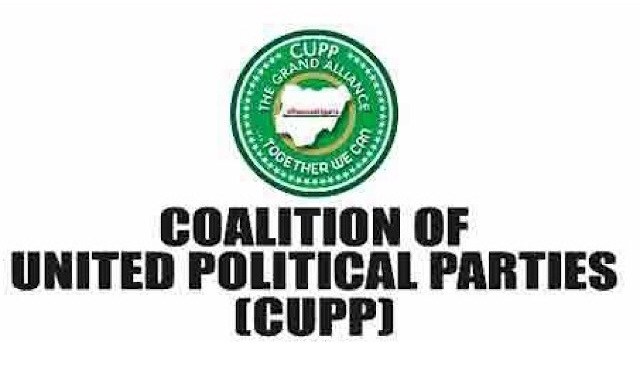Coalition of United Political Parties (CUPP) has cautioned against a Bill for the establishment of the National Independent Local Government Electoral Commission, currently undergoing process before the National Assembly, saying that the Bill, if finally passed into law, portends a fundamental erosion of the principles of constitutional federalism that the country is currently operating.
The bill titled: “Local Government Independent Electoral Commission (Establishment) Bill, 2024 (SB. 531),” which has since scaled first reading in the Senate and sponsored by Chairman, Committee on Finance, Senator Sani Musa (APC – Niger East) is seeking for the establishment of the body that will be saddled with the responsibility of conducting elections for the 774 local governments in the 36 states and the Federal Capital Territory (FCT).
The proposed electoral commission shall consist of a chairperson and six commissioners, appointed by the president and confirmed by the Senate.
The chairperson and commissioners shall serve for a term of five years, and renewable once.
CUPP spokesperson, Comrade Mark Adebayo, gave this word of caution in a chat with our correspondent, noting that though the Bill, on face value, was germane to the whole idea of Local Government autonomy from the totalitarian grips of the state governors, which had been “quite disturbing and egregious,” argued that to make council elections a Federal Government affair is absolutely unhealthy for Federalism.
Adebayo, while further knocking the proposed Bill, cautioned that the country “may be unwittingly solving a problem with a bigger problem,” maintaining that it was a way of allowing the Federal Government to have a domineering authority over local government areas with a view to determining who becomes what at that level of government during elections.
“On the face value, this Bill is germane to the whole idea of Local Government autonomy from the totalitarian grips of the state governors.
“However, it portends a fundamental erosion of the principles of constitutional Federalism that we currently operate.
“Whilst the vice grip of the state governors on the LGs is quite disturbing and egregious, to make LG elections a Central Government affair is absolutely unhealthy for Federalism,” Adebayo stated.
“It is a way of allowing the Federal Government have a domineering authority over local government areas with a view to determining who becomes what at the local government level during elections. We may be unwittingly solving a problem with a bigger problem. Politics is local, as they say.
“Therefore, local government affairs should not be taken to the purview of Central government responsibilities. The Federal Government would be given an undue advantage over local politics,” he added.
CUPP spokesperson, Adebayo, insisted that the proposed Bill is more disadvantageous to the country if finally passed into law, and further warned that should a single body be allowed to conduct elections into 774 LGAs, such task would be more than unwieldy, leading to “monumental logistics nightmares and gargantuan electoral failures.
“The disadvantages of such a Bill outweigh its advantages, in my opinion.
“For a single body to conduct elections into 774 LGAs is more than unwieldy and will create monumental logistics nightmares and gargantuan electoral failures,” he further warned.
He, however, urged for continued improvement on the nation’s local government election process as was being done currently “on national elections until we get it right.”
“We should rather continue improving on our LG elections as we are on national elections until we get it right,” he said.
